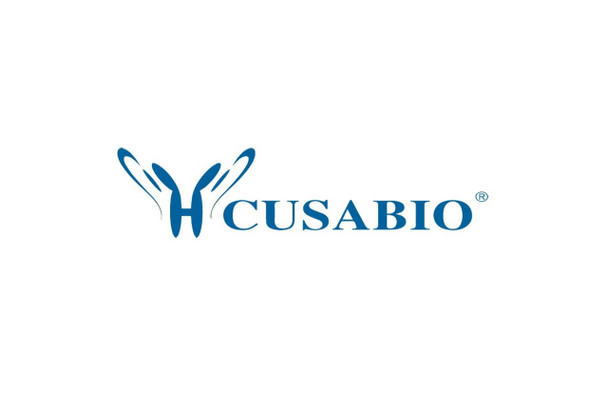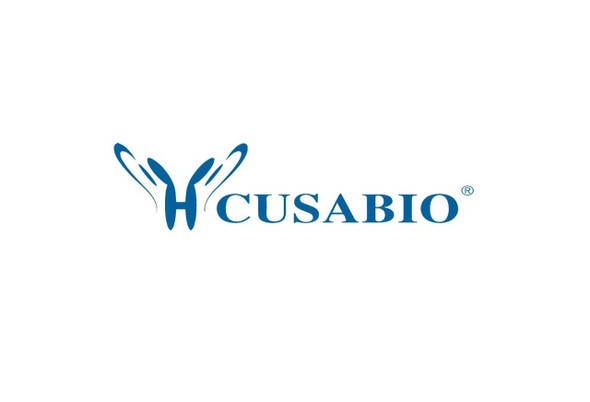Cusabio Mouse Recombinants
Recombinant Mouse Methylcytosine dioxygenase TET2 (Tet2), partial | CSB-EP678395MO
- SKU:
- CSB-EP678395MO
- Availability:
- 13 - 23 Working Days
Description
Recombinant Mouse Methylcytosine dioxygenase TET2 (Tet2), partial | CSB-EP678395MO | Cusabio
Alternative Name(s): Protein Ayu17-449 (Kiaa1546)
Gene Names: Tet2
Research Areas: Epigenetics and Nuclear Signaling
Organism: Mus musculus (Mouse)
AA Sequence: RISLVLYRHKNLFLPKHCLALWEAKMAEKARKEEECGKNGSDHVSQKNHGKQEKREPTGPQEPSYLRFIQSLAENTGSVTTDSTVTTSPYAFTQVTGPYNTFV
Source: E.coli
Tag Info: N-terminal 6xHis-KSI-tagged
Expression Region: 1810-1912aa
Sequence Info: Partial
MW: 27.0 kDa
Purity: Greater than 85% as determined by SDS-PAGE.
Relevance: Dioxygenase that catalyzes the conversion of the modified genomic base 5-methylcytosine into 5-hydroxymethylcytosine and plays a key role in active DNA demethylation. Has a preference for 5-hydroxymethylcytosine in CpG motifs. Also mediates subsequent conversion of 5hmC into 5-formylcytosine, and conversion of 5fC to 5-carboxylcytosine. Conversion of 5mC into 5hmC, 5fC and 5caC probably constitutes the first step in cytosine demethylation. Methylation at the C5 position of cytosine bases is an epigenetic modification of the mammalian genome which plays an important role in transcriptional regulation. In addition to its role in DNA demethylation, also involved in the recruitment of the O-GlcNAc transferase OGT to CpG-rich transcription start sites of active genes, thereby promoting histone H2B GlcNAcylation by OGT.
Reference: "Combined deficiency of tet1 and tet2 causes epigenetic abnormalities but is compatible with postnatal development." Dawlaty M.M., Breiling A., Le T., Raddatz G., Barrasa M.I., Cheng A.W., Gao Q., Powell B.E., Li Z., Xu M., Faull K.F., Lyko F., Jaenisch R. Dev. Cell 24:310-323(2013)
Storage: The shelf life is related to many factors, storage state, buffer ingredients, storage temperature and the stability of the protein itself. Generally, the shelf life of liquid form is 6 months at -20?/-80?. The shelf life of lyophilized form is 12 months at -20?/-80?.
Notes: Repeated freezing and thawing is not recommended. Store working aliquots at 4? for up to one week.
Function: Dioxygenase that catalyzes the conversion of the modified genomic base 5-methylcytosine (5mC) into 5-hydroxymethylcytosine (5hmC) and plays a key role in active DNA demethylation. Has a preference for 5-hydroxymethylcytosine in CpG motifs. Also mediates subsequent conversion of 5hmC into 5-formylcytosine (5fC), and conversion of 5fC to 5-carboxylcytosine (5caC). Conversion of 5mC into 5hmC, 5fC and 5caC probably constitutes the first step in cytosine demethylation. Methylation at the C5 position of cytosine bases is an epigenetic modification of the mammalian genome which plays an important role in transcriptional regulation. In addition to its role in DNA demethylation, also involved in the recruitment of the O-GlcNAc transferase OGT to CpG-rich transcription start sites of active genes, thereby promoting histone H2B GlcNAcylation by OGT.
Involvement in disease:
Subcellular Location:
Protein Families: TET family
Tissue Specificity: Highly expressed in the brain, kidney, heart, lung, muscle and stomach. Present in embryonic stem cells (ES cells).
Paythway:
Form: Liquid or Lyophilized powder
Buffer: If the delivery form is liquid, the default storage buffer is Tris/PBS-based buffer, 5%-50% glycerol. If the delivery form is lyophilized powder, the buffer before lyophilization is Tris/PBS-based buffer, 6% Trehalose, pH 8.0.
Reconstitution: We recommend that this vial be briefly centrifuged prior to opening to bring the contents to the bottom. Please reconstitute protein in deionized sterile water to a concentration of 0.1-1.0 mg/mL.We recommend to add 5-50% of glycerol (final concentration) and aliquot for long-term storage at -20?/-80?. Our default final concentration of glycerol is 50%. Customers could use it as reference.
Uniprot ID: Q4JK59
HGNC Database Link: N/A
UniGene Database Link: UniGene
KEGG Database Link: KEGG
STRING Database Link: STRING
OMIM Database Link: N/A











